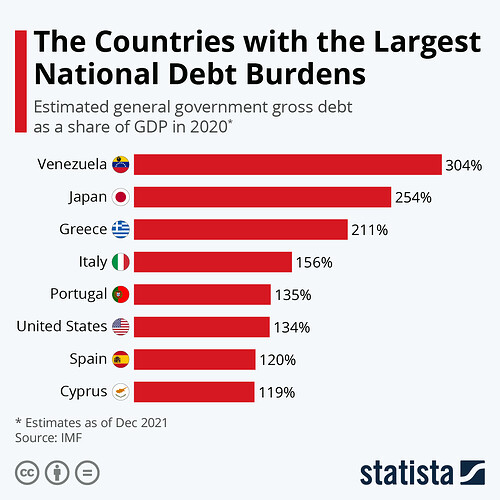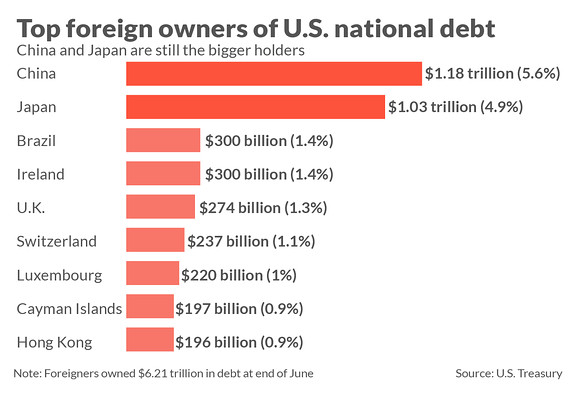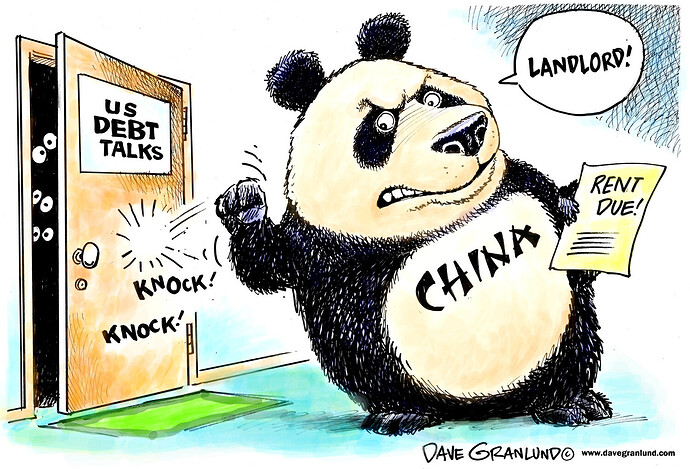I have no idea what any of that means.
If China did such a thing the American “China experts” on Youtube would post thousands of hysterical videos telling us their economy is completely finished.
WIth all the borrowing AMerica does, dedolarization of world trade would be the end of that currency. No one will accept being payed in dollars. Everyone with a sane mind will demand the gold backed currency when trading with the West.
Expert azoh alai, break it down for bonobo
America debt to budget ratio 8%. Kenya debt to budget ratio 63%.
I would be more worried about Kenya next year when Eurobond comes due. Economists always preach you can borrow if you produce.
But yes let’s dedollarize and pay our debt in yuan or kwacha or even mbuta, what difference does it make.
Ni akili hauna ama ni nini ? Ati debt to budget ratio 8 %
It means uhuru ni mbaya.
Dynasty tawara
@Simiyu22 Simiyu, simiyu, simuyu. My friend Simiyu. Information is free on the internet. Wachana na CNN na Fox News and get properly informed on world happenings.
Niliona each American including a one day old baby has a debt of 95,000 Ndalas. Or Roughly ksh 13.4 million.
:D:D:D This guy is notorious for pulling shit outta his ass and posting it here confidently.
Na akiambiwa atoe effidense anasema “I heard/read it somewhere”
Wewe hujui there’s a shortage of dollars in the country, manufacturers were just juzi saying they are operating at low capacity because they are having trouble importing raw materials? Kenyan importers/producers will do much better with dedollarization. Infact the entire global south will benefit greatly from a more fair financial system.
Kenya, the most dynamic economy in East Africa, has a shortage of dollars. Most fuel and oil importers claim they cannot import the commodities because of the dip in the supply of foreign currency.
This has led to fuel shortages in major places around the country especially the capital, Nairobi, where motorist Ibrahim Ngaumbua waits in a long line to fill up.
“This is the third petrol station that I have come to,” he complains. “I am looking for fuel.”
This Shell filling station has run out of regular petrol, but the more expensive V-Power fuel is still available.
“I just decided to fuel V-Power but I don’t know where I can get the regular petroleum anymore,” Ngaumbua told DW.
The dip in Kenya’s foreign exchange (forex) reserves is being blamed for the current crunch hitting Kenyan consumers. The first to feel the pain are traders and motorists trying to fill up, with some filling stations running out of petrol and diesel, especially in Nairobi.
Because Kenya’s oil and fuelimporters use US dollars to buy fuel, the forex shortage has had a direct impact on the country’s fuel supplies, and by extension, the country’s supply chain.
But it has has also impacted essential imports such as medicine and food. With insufficient hard currency, both major and small-scale traders claim they cannot import goods.
For businessmen like vehicle importer Edward Gachani, not being able to access the necessary amounts of hard currency is crippling his work, and makes it difficult for him to settle financial obligations with foreign business partners.
“The prices have really shot up, not because the prices in Japan or the other side have gone very high, but because of the dollar, the exchange rate,” he told DW.
With the plummeting shilling, business operations, investments, and economic growth are also poised to decline, according to Martin Chomba, a Kenya-based economist.
“Some oil marketing companies are unable to raise as much dollars as they want. We believe this is the issue that the government is trying to address, in terms of government-to-government procurement, so that we can ease the pressure that the shilling is getting from the dollar,” Chomba told DW.
Uhuru should come back and take charge of the economy. The World Bank praised Uhuru for a well job done in running the economy:
Quote:
[I]Kenya’s economy achieved broad-based growth averaging 4.8% per year between 2015-2019, significantly reducing poverty (from 36.5% in 2005 to 27.2% in 2019 ($2.15/day poverty line).
In 2020, the COVID-19 pandemic shock hit the economy hard, disrupting international trade and transport, tourism, and urban services activity. Fortunately, the agricultural sector, a cornerstone of the economy, remained resilient, helping to limit the contraction in GDP to only 0.3%. [/I]
In 2021, the economy staged a strong recovery, with the economy growing at 7.5%.
Kenya’s economy continued to rebound from the pandemic in 2022 with real gross domestic product (GDP) increasing by 6% year-on-year in the first half of 2022, driven by broad-based increases in services and industry.
The government reduced the budget deficit in fiscal year (FY) 2021/22 from 8.2% to 6.2% through revenue measures and expenditure moderation.
Total revenue increased to 17.3% of GDP in FY2021/22 from 15.7% in FY2020/21, reflecting the pick-up in domestic demand and a range of tax reforms as well as improvements in tax administration and the use of technology.
Dynaste tawarra.
Let’s dedollarize. We can even pay using bundles of Ngege from Lake Victoria.
Kicking the Can down the road …
Debt never just goes away …
At some point , it has to be paid off … :D:D


